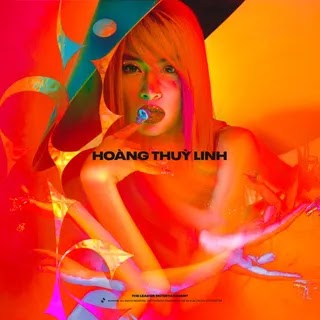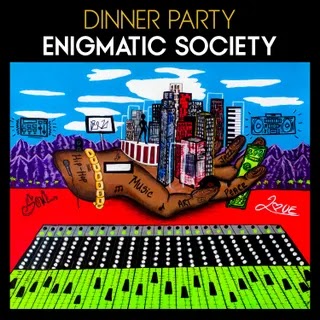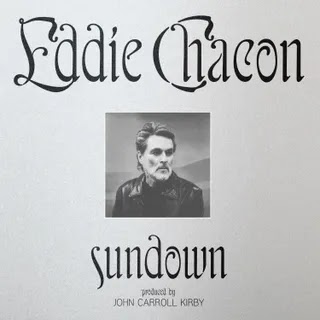The latest album from the Vietnamese pop artist is an empowering statement of purpose, at its best when pairing evocative storytelling with theatrical, large-scale production.
Hoàng Thùy Linh has spent the better part of her adulthood reclaiming her narrative. The Vietnamese actress and V-pop artist was a teenager in 2007 when her sex tape leaked online, causing nationwide uproar. The television show she starred in, Vàng Anh’s Diary, was immediately canceled and the resulting farewell program caused further outrage. People said her crying was an act, that her attitude wasn’t sufficiently repentant; many assumed her career was over. She began making glitzy electropop a few years later and would increasingly weave her life story into her art, crafting some of the most satisfyingly conceptual records in V-pop history. In 2018 she wrote a tell-all autobiography that detailed the incident and its aftermath. It was called Vàng Anh & Phượng Hoàng (“Oriole & Phoenix”); in publicly revealing her old story, she was ready to begin telling a new one.
Her 2019 album, Hoàng, cemented the transformation; “Duyên Âm” in particular was an arresting showcase of her ability to merge traditional Vietnamese culture with contemporary pop production. Its video made various allusions to her life but ends with her in royal garb, representing the phoenix’s second meaning in local mythology: an empress. Three years later, her fourth album, Link, is another empowering statement of purpose. A riff on her first name, the title also points to the invaluable relationships that have sustained her all these years. (Notably, it was released on the day of the Vu Lan festival, a ceremony honoring parents.) “Today I’m sitting here, fully healed,” she said in February. “I’m genuinely starting to feel love, to crave a connection with other souls.”
At 34, Hoàng writes songs replete with messages about finding joy in every moment. On “Lúc Thấy Lúc Không” she fawns over a guy who was once affectionate but is now nowhere to be found. Its lively synth pulses capture the incomparable high of pursuing a crush, but its underlying message is a celebration of how early flings can help you become wiser in love. “Life will have sad times, happy times, in-between times, or times of unnamed feelings,” she said in a press conference about Link. “Just treat yourself and indulge, because every choice will make you more complete.” Hoàng summarizes this sentiment on “Hạ Phỏm,” where racing synth melodies and trap drums bolster a message about treating life’s challenges not as something to win or lose, but as opportunities to grow. Her slick maneuvering between rapping and singing sells her assurance.
Link’s most convincing moments arrive when sonic experimentation matches lyrical conceit. The theatrical epic “Trưởng Nữ Chạy Trốn” begins with a warped rendition of the “Wedding March” before transforming into a runaway bride story that’s part Cardi B, part BLACKPINK. In her autobiography, Hoàng confessed she was plagued with self-blame in the year following the leak, and that things didn’t change when she found her next partner. He was 20 years her senior, disparaged her profession, and saw other women on the side; still, she stayed for four years filled with self-hatred, convinced nobody else could love her. It’s a delight, then, to hear such gleeful sneering across “Trưởng Nữ Chạy Trốn.” She mocks this former lover and his empty words by chanting “blah blah blah,” while pounding drums and dramatic strings assert her dominance. The rattling percussion and pogoing electronics that close the song are taunts pouring salt in the wound.
Large-scale production and evocative storytelling return in “Đánh Đố.” Produced by Triple D, who specializes in jaw-dropping EDM spectacles, it incorporates grandiose instrumentation to depict self-discovery as an unwieldy, tumultuous process. Hoàng’s voice is nearly overwhelmed by operatic performances by vocalists Tùng Dương and Thanh Lam, both of whom sing with so much vigor that listening to “Đánh Đố” borders on anxiety-inducing. Much easier to swallow is the buoyant jubilance of “Gieo Quẻ.” Released on New Year’s Day, the single is Hoàng’s attempt at creating an “escape route” from the grim realities brought on by the pandemic. The chorus’ cheerful drop and flute melody feel like a moment to pause, reflect, and look to the future.
As Hoàng has become more confident, her music has become more distinctive while encompassing inspiration from a wide range of cultures. Take “See Tình” (“See Love”), whose title is a play on “si tình,” which means “lovesick.” Its breezy disco-funk channels Funk Wav Bounces, its chorus recalls K-pop’s love for onomatopoeic hooks, and the sped-up remix that blew up on TikTok (accompanied by one of the most famous K-pop choreographies) is closer to nightcore than Vietnam’s own vinahouse. Still, listen closely and you will hear variations on the word “tình” meant to resemble the filler words—the “la la la”s of Vietnamese—used throughout traditional folk songs. Her playful navigation of Vietnam past and present, something central to her art, exists even here. On Link, Hoàng’s music evolves thanks to this deepening web of influences and the strong community of friends and collaborators around her.
















0 comments:
Post a Comment